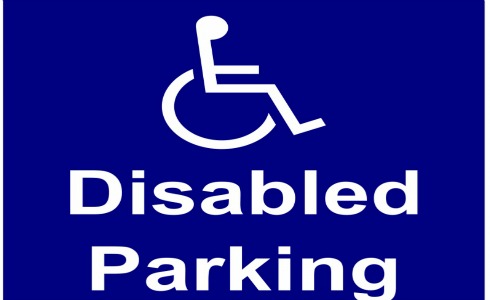
CHICAGO (STMW) – The City Council moved Wednesday to stop chronic abuses in a city program that has allowed people with disabled parking placards to reserve on-street parking spaces in front of their homes.
Aldermen unanimously approved Mayor Rahm Emanuel’s plan to limit the total number of restricted parking spaces to no more than “20 percent of the available parking spaces” on a designated block.
The changes would further require that the person driving the placard holder reside with the applicant and at the residence for which the application was made.
The city’s decision on whether to issue the placard would depend, in part, on “whether alternative accessible off-street parking located at the applicants primary residence” is available.
And the Mayor’s Office for People with Disabilities could review denials only on the question of whether off-street parking is accessible.
In 2007, a Chicago Sun-Times investigation found that nearly 10 percent — 1,097 -— of the disabled spots on city rolls were at addresses where no nearby resident holds a state-issued disabled license plate or parking credential, as required by law.
A review of city permits also turned up 260 spaces set aside for dead people, some of them dead for five years or more.
In spite of those abuses, a City Council committee voted a few months later to let motorists with disabilities park at the designated spaces in front of their homes without displaying a windshield placard to give a break to forgetful seniors getting hammered with parking tickets.
The Mayor’s Office for People with Disabilities objected to that change. In response to an apparent explosion in the number of requests for disabled spaces by Chicago’s growing senior population, senior policy analyst Laurie Dittman also disclosed at that time that she was drafting an ordinance with even stricter requirements.
A pair of lakefront aldermen who are no longer in the City Council — Vi Daley (43rd) and Helen Shiller (46th) — subsequently proposed a pilot program tailor-made to ease the parking crunch by requiring motorists with disabilities in their congested wards to share designated on-street spaces in front of their homes.
Like Emanuel, their ordinance limited the total number of “individual and shared restricted parking spaces” to no more than “20 percent of the available parking spaces” on a designated block.
“We have some blocks where we may have five or six people applying and there’s only 15 spaces. Every time someone moves, someone comes right behind them. If those spaces were able to be used by anyone who has a placard, they would be utilized more often,” Shiller said at the time.
Daley said the problem was getting out of hand, particularly around high-rise buildings where a lot of senior citizens live.
“More and more people are asking. We’d end up having a street with nothing but handicapped spaces — and no place for anybody else to park,” Daley said.
Laurie Dittman, a senior policy analyst for the Mayor’s Office for People with Disabilities, has said the changes are aimed at ensuring that “the people getting these parking spaces are the most in need. They’re the ones who reside there. A parking spaces isn’t being set aside for a family member, a friend or a PACE vehicle.”
Dittman said one of the chronic problems is that people are requesting designated on-street spaces, even though they have access to a garage.
From now on, those motorists will have to prove that their decision not to use the garage is “accessibility-related….It could be their vehicle doesn’t fit in the garage. A number of wheelchair-accessible vehicles are too high. But, just because someone uses their garage for storage doesn’t get them a space in front of their house.”
(Source: Sun-Times Media Wire © Chicago Sun-Times 2012. All Rights Reserved. This material may not be published, broadcast, rewritten, or redistributed.)